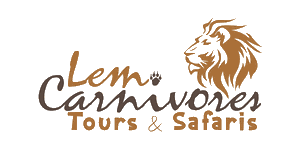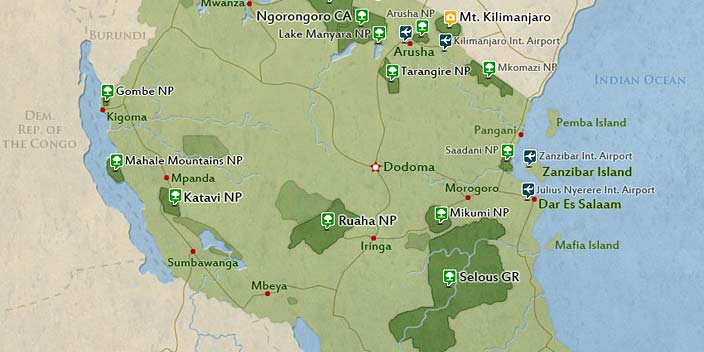
Arrival
Arrival

Day 1
Arusha Town – Lake Manyara National Park
Arusha Town – Lake Manyara National Park
You will be pick up at the hotel in Arusha and after a short briefing in the morning, you set off to the Lake Manyara National Park. The small park stretches along the 600m-high Rift Valley escarpment and is dominated by the alkaline Lake Manyara. It is here where thousands of flamingos seem to colour the shallow waters pink. Many waterbirds gather at the lake and more than 400 bird species are found in the park. The diverse vegetation provides a habitat for many animals such as monkeys in the forest, giraffes and antelopes on the grasslands and elephants around the acacia trees. If you are very lucky, you might also see the Manyara lions lounging in the trees.
In the late afternoon, you will leave the Lake Manyara National Park and head to the juamanyara near manyara national park, where you will spend the night.
- Main Destination:
- Lake Manyara National Park
- Accommodation:
- Budget camping
- Meals & Drinks:

Day 2
Lake Manyara Area – Serengeti National Park
Lake Manyara Area – Serengeti National Park
After breakfast, you will drive toward the fertile crater highlands where the Iraqw people grow wheat, corn and coffee. You will pass the Ngorongoro Crater before you reach the plains of the Serengeti National Park around midday. The Serengeti is the largest park in Tanzania and has a diversity of habitats and landscapes including short grass plains, savannah, thick bush, swamps, mountains and lakes. Bizarre rock formations called kopjes dot the grassy landscape where predators are often seen.
Depending on the season, you will witness the migration of thousands of animals which this park is famous for. During the short rainy season in November and December, the herds move from the hills in the north to the plains in the south. During the longer rainy season from April to June, they return up north. This circle of life is completely dependent on the yearly rainfalls. The locations of the herds may vary from year to year but your guide will know where to find the animals.
- Main Destination:
- Serengeti National Park
- Accommodation:
- Budget camping
- Meals & Drinks:

Day 3
Serengeti National Park – Ngorongoro Conservation Area
Serengeti National Park – Ngorongoro Conservation Area
Dawn is a good time to watch wildlife so you will be up early to join the morning game drive. You will return to the camp for breakfast before heading out for another game drive in the park. Here in the Seronera region, you will often see wildebeests and zebras in close proximity to lions and other predators such as leopards and cheetahs. After a picnic lunch, you will continue your journey toward the Ngorongoro Crater. Once you have reached the crater rim, you will enjoy fantastic views of this 600m-deep collapsed volcano.
- Main Destination:
- Ngorongoro Crater
- Accommodation:
- Budget camping
- Meals & Drinks:

Day 4
Ngorongoro Crater – Arusha Town
Ngorongoro Crater – Arusha Town
After an early breakfast, you will drive down the steep and narrow road that takes you into the crater. The slopes are forested but soon the landscape changes to savannah. Here the wildlife is just breathtaking, and with a little luck, you can observe the Big Five (lion, elephant, buffalo, rhino and leopard) in just a few hours. You should also see warthogs, wildebeests, zebras, hippos and some of the more than 500 bird species in the area.
After a morning dedicated to game viewing and a picnic lunch, you will leave the crater in the early afternoon to drive back to Arusha Town at your hotel around Arusha where you will arrive in the early evening.
- Main Destination:
- Ngorongoro Crater
- Accommodation:
- No accommodation (End of tour)
- Meals & Drinks:



















